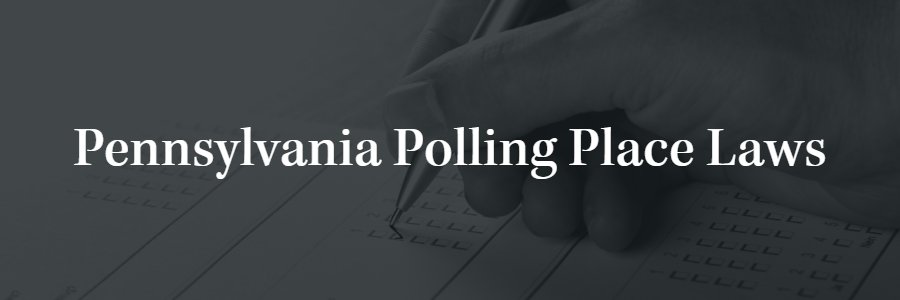Pennsylvania is one of five states at a high risk for activity by armed groups and militias around the Nov. 3 election, according to a recent report. As the rhetoric is ratcheted up, many Philadelphia voters worry for their overall safety. Voter intimidation, or any threatening behavior at polls for that matter, is illegal by federal law and by Pennsylvania law, punishable by imprisonment. But the lines can get quickly blurred when the Election Code does not address firearms directly, and no current law restricts carrying guns into polling places unless they are located at a school or court facility (18 Pa. C.S. § 912). In fact, Pennsylvania’s statute limits the country from regulating firearms, if the possession and use is lawful (18 Pa.C.S. 6120).
That said, Philadelphia’s response to voter intimidation and Pennsylvania’s guidelines concerning poll watchers, for the most part, are clear and unyielding. Just this month, Philadelphia’s judge ruled against the Trump campaign’s attempt to have unauthorized poll watchers at satellite election offices, and Philadelphia’s DA created an Election Task Force with a hotline specifically to address voter intimidation and any potential threat at election polls.

What are Philadelphia’s Laws for Poll Watchers?
To become an authorized poll watcher (25. P.S. §2687): You must be a qualified registered elector of the county you are looking to poll watch. Poll watchers must be assigned to specific precincts, receive official county credentials ahead of time, and identify themselves. As a poll watcher, you are required to have a certificate from the County Board of Elections with your name and the name of the candidate or political party you represent. Each party may appoint up to three poll watchers per precinct and each candidate may appoint two watchers per precinct.
Note: Per the Election Code (25 P.S. § 3060), campaigning is not permitted at the polling place. Local election officers, poll workers, and poll watchers are prohibited from wearing partisan attire or carrying other campaigning material.
What Exactly is Considered “Voter Intimidation?”
Voter intimidation is any activity or behavior that interferes with the voter’s right to vote, and it is important to note that this includes activity that happens inside or outside of the polling place and the time frame of Election Day. Voter intimidation is illegal and can involve harassing, threatening, or coercive acts.
Voter Intimidation Statute:
In Pennsylvania, the statute is “25 P.S. § 3547: Prohibiting Duress and Intimidation of Voters and Interference with the Free Exercise of the Elective Franchise.”
Voter intimidation can include:
- Taking pictures or recording videos of voters
- Spreading misleading or false election information to voters
- Blocking the entrance to a polling place
- Behaving in a way that comes off as threatening
- Not maintaining a respectful distance from voters and confronting, directly speaking to, or questioning voters
- Asking voters for documentation
Penalties for Voter Intimidation:
- By law (52 U.S.C. § 10308): Discriminating against voters can result in a fine up to $5,000 and up to five years in prison.
- (52 U.S.C. § 241): Conspiring to interfere with a person’s right to vote can result in up to 10 years in prison.
- (25 P.S. § 3547): Intimidating voters can result in a fine up to $5,000 and up to two years in prison.
Policy on Masks during COVID-19:
In Philadelphia, the Department of Health’s Universal Face Coverings Order requires poll watchers and poll workers to wear masks at all times. Election polls will maintain a supply of gloves, masks and hand sanitizer, offering masks to voters without one. Voters, however, are strongly advised to wear masks, but will be permitted to vote either way.
How to Stay Safe:
If you experience voter intimidation, or something that just doesn’t feel right, contact the Philadelphia DA’s Election Task Force hotline at 215-686-9641, and the national voter hotline at 1-866-OUR-VOTE.
You have every right to be at a polling place, to vote, and to feel completely safe. No one has the right to make you feel uncomfortable, threatened, or in danger. The law is on your side, and so are the personal injury lawyers in Philadelphia.